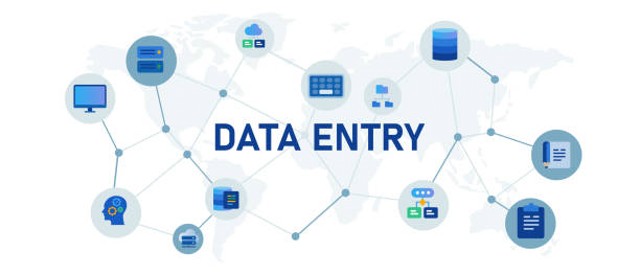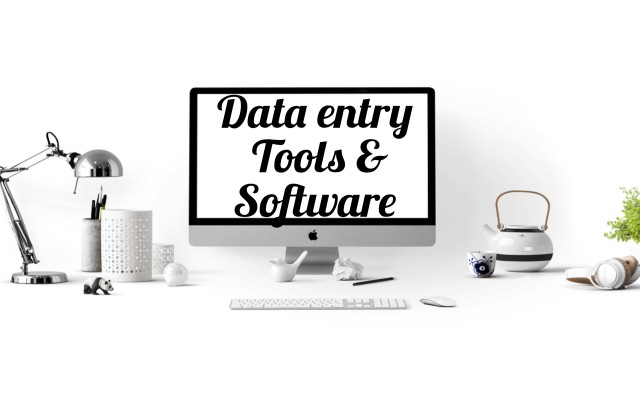Data entry is a vital task in many businesses and industries. It involves the process of inputting and organizing information into digital systems. As technology continues to evolve, the future of data entry is also changing.
As a data entry professional or business person there is a need for you to stay updated with the trends and emerging technologies in the data entry industry.
In this blog post, we will explore the emerging trends and technologies that are shaping the future of data entry.
READ ALSO: The Role of Data Entry In Business Intelligence
What are the emerging trends and technologies that are shaping the future of data entry?
The Rise of Automation
Do you know that one of the biggest trends in the future of data entry is the increasing use of automation? Automation technologies, such as robotic process automation (RPA) and artificial intelligence (AI), are transforming the way data entry tasks are performed.
RPA is a software-based technology that can automate repetitive, rule-based tasks. This means that RPA can be used to automatically input data into digital systems. This reduces the need for manual data entry. RPA can also be used to validate and verify data, improving the accuracy of data entry.
AI-powered data entry is another emerging trend. AI systems can be trained to recognize and interpret data from various sources, such as documents, images, and audio recordings. This allows AI systems to automatically input data into digital systems, reducing the need for manual data entry.
The benefits of automation in data entry are numerous. It can improve efficiency, reduce errors, and free up employees to focus on more strategic tasks. As automation technologies continue to develop, we can expect to see an increasing use of these technologies in data entry processes.
The Shift Towards Remote and Hybrid Work
The COVID-19 pandemic has had a notable impact on the way we work, and this has also affected the future of data entry. With more employees working remotely or in a hybrid work environment, there is a growing need for data entry solutions that can be accessed and used from anywhere.
Cloud-based data entry software is one solution that is gaining popularity. These software platforms allow users to access data entry tools and systems from any device with an internet connection. This makes it easier for remote and hybrid workers to perform data entry tasks, without the need to be physically present in an office.
In addition to cloud-based software, there is also an increasing use of mobile devices for data entry. Smartphones and tablets can be used to input data on the go, making it easier for field workers and remote employees to capture and input data in real time.
The shift towards remote and hybrid work is also driving the need for more secure and collaborative data entry solutions. Businesses need to ensure that their data entry processes are protected from cyber threats, while also allowing for seamless collaboration between team members.
READ ALSO: Data Entry Jobs: The Impact of Artificial Intelligence
The Integration of Emerging Technologies
As technology continues to evolve, we can expect to see the integration of emerging technologies into data entry processes. Some of the technologies that are shaping the future of data entry include:
1. Internet of Things (IoT): IoT devices, such as sensors and smart devices, can be used to automatically capture and input data into digital systems. This can reduce the need for manual data entry and improve the accuracy of data.
2. Blockchain: Blockchain technology can be used to create secure and transparent data entry processes. By storing data entry records on a decentralized blockchain, businesses can improve the traceability and integrity of their data.
3. Natural Language Processing (NLP): NLP technology can be used to automatically extract and input data from various sources, such as written documents and audio recordings. This can streamline data entry processes and reduce the need for manual data entry.
4. Computer Vision: Computer vision technology can be used to automatically capture and input data from images and documents. This can be useful for data entry tasks that involve the processing of physical documents.
READ ALSO: Data Entry Tools and Software: A Full Guide
What is the importance of data quality?
As data entry processes become more automated and technology-driven, the importance of data quality is becoming more critical. Businesses need to ensure that the data they are inputting into their systems is accurate, complete, and up-to-date.
One of the key challenges in ensuring data quality is the need for data cleansing and normalization. As data is collected from multiple sources and entered into digital systems, it can often be inconsistent or contain errors. Data cleansing and normalization processes can be used to identify and correct these errors, improving the overall quality of the data.
Another important aspect of data quality is data governance. Businesses need to have clear policies and procedures in place for managing and maintaining their data. This includes defining data ownership, establishing data quality standards, and implementing data auditing and monitoring processes.
The use of data analytics and business intelligence tools can also be valuable in improving data quality.
READ ALSO: Benefits of Data Visualization And Why Is a Top Data Skill
The Emergence of Specialized Data Entry Services
While many businesses are automating their data entry processes, there is still a need for specialized data entry services. These services can be particularly useful for businesses that have complex or unique data entry requirements.
Specialized data entry services can be provided by outsourcing companies or freelance data entry professionals. These services can include tasks such as:
1. Data entry from physical documents: Some businesses may still rely on physical documents for data entry, such as invoices or order forms. Specialized data entry services can be used to input this data into digital systems.
2. Data entry for complex or specialized industries: Certain industries, such as healthcare or finance, may have unique data entry requirements. Specialized data entry services can provide the expertise and tools needed to handle these complex data entry tasks.
3. Data entry for large-scale projects: Businesses that need to process large volumes of data may benefit from the use of specialized data entry services. These services can provide the resources and expertise needed to handle large-scale data entry projects efficiently.
READ ALSO: Data Entry vs Data Science: What is the Difference?
What is the Importance of Cybersecurity in Data Entry?
Because data entry deals with data, some of which are sensitive information, there is a need to protect these data from cyber threats. Hence, the importance of cybersecurity in data entry is becoming increasingly critical.
To protect against these threats, businesses need to implement cybersecurity measures in their data entry processes. This can include:
1. Secure data storage and transmission: Ensure that data is stored and transmitted securely, using encryption and other security protocols.
2. Access controls and user authentication: You can achieve this by implementing strong access controls and user authentication measures to prevent unauthorized access to data entry systems.
3. Incident response and disaster recovery planning: You can achieve this by developing incident response and disaster recovery plans. It will ensure that businesses can quickly and effectively respond to and recover from cyber incidents.
4. Employee training and awareness: Provide regular training and education to data entry professionals on cybersecurity best practices and identifying potential threats.
READ ALSO: Data Entry Security: How to Protect Data From Cyber Threats
Conclusion
To stay ahead of these trends and ensure that their data entry processes are efficient, accurate, and secure, businesses need to stay informed and adaptable. This may involve investing in new technologies and implementing data governance and cybersecurity measures.
As the future of data entry continues to unfold, it is important for businesses to stay informed to stay ahead of the trend.







